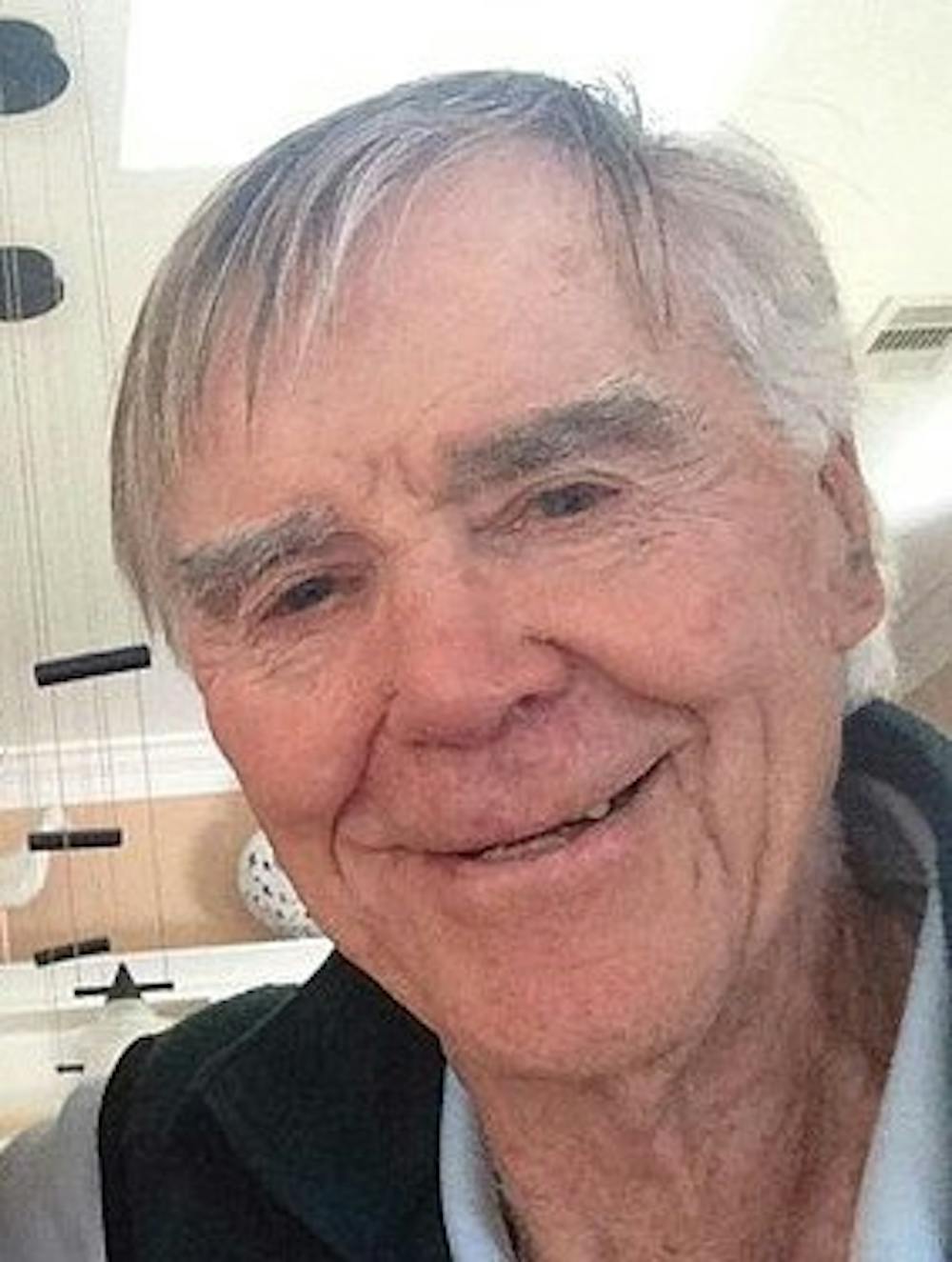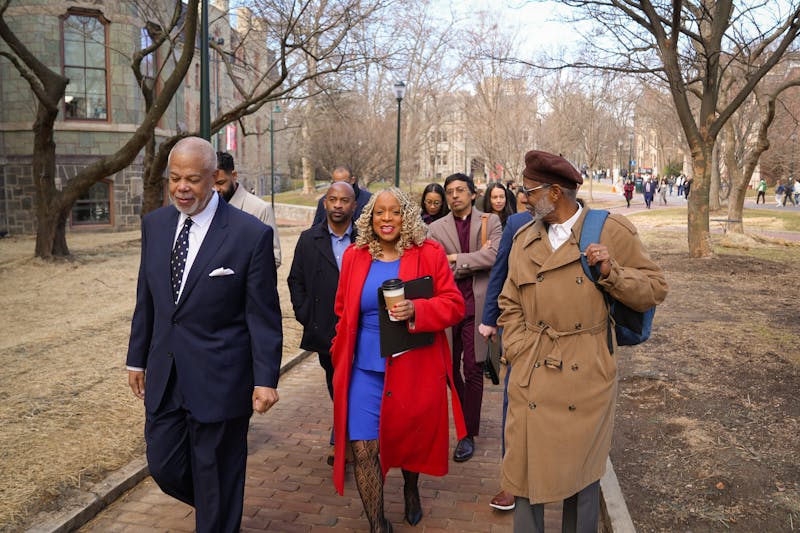On Thursday, June 1st, Penn Athletics lost a legendary member of its community. Former Penn student athlete and basketball coach, Jack McCloskey, the General Manager and architect of the legendary “Bad Boys” Pistons, died at the age of 91 after a battle with Alzheimer’s.
As a beloved and well-renowned figure in the world of sports, many people in the Penn community and beyond expressed their sorrow in light of the tragic news.
In a statement to Penn Athletics, current men’s basketball coach Steve Donahue said that, “In my mind, he was the man who really began the historic run of Penn’s basketball success. His leadership in the 1960s made Penn basketball a national product and set the stage for those incredible teams we had in the 1970s.”
Former Pistons guard and Hall of Famer Isiah Thomas, who McCloskey drafted number one overall in the 1981 NBA Draft, posted an old picture of himself and McCloskey on Twitter with the short but sweet caption, “Rest in Peace, I love you....”
“He was a unique GM because we were close with him about explaining what was going on on the floor and how we felt about our team,” Former Piston’s Forward Mark Aguirre said. “Then, [as a result], we had a really, really close relationship amongst Jack and the team. It was a very good relationship. He was a beautiful man to work for.” Aguirre, who led DePaul over Penn in the third place game of the 1979 NCAA tournament, was key trade piece for the Pistons two championships and was one of the many moves that helped McCloskey earn the nickname “Trader Jack.”
The news of his death was especially emotional for former Penn guard Stan Pawlak, an honorable mention All-American under McCloskey in 1966.
“I was sitting in my living room early in the morning before playing golf and I saw a byline on ESPN or the NBA Channel. And as soon as I saw his name I was pretty certain that he had passed,” Pawlak reflected. “I was very upset. The first thing I wanted to do was, if my teammates hadn’t heard [the news], was to contact them and let them know. Then, I googled his name to see what people were saying about him.”
As a student-athlete at Penn for one year, McCloskey lettered in basketball, baseball and football, where he earned honorable mention All-American during the 1943-1944 school year.
After serving in the Navy, McCloskey came back to Penn to complete his degree in education in 1948. After his career in the Eastern Basketball League, where he won back to back MVP’s in 1953 and 1954, he once again returned to Penn as the basketball coach for the 1956-1957 season.
He ended up coaching Penn from 1956 to 1966. He compiled a win-loss record of 216-194 (52.7%) and won the regular season Ivy League championship during the 1965-1966 season. However, his impact goes well beyond his win-loss record.
“Everyone you talk to will say this,” Pawlak said. “When you met him, he shook your hand and made an impression upon you that you’ll probably never forget. You knew he was an honest man.”
Pawlak ended up coaching in Europe for a number of years. McCloskey’s values and style resonated with him throughout his coaching career.
“He was a tremendous fundamental coach, taught me almost everything I know about basketball,” Pawlak said.
However, McCloskey’s Penn coaching tree does not end there. Dick Harter, who was an assistant under McCloskey from 1955-1956 and 1958-1965, became Penn’s head coach from 1966-1971 after McCloskey left for Wake Forest. In Harter’s final two years, Penn had only one regular season defeat. Harter went on to further success at Oregon and as an NBA assistant. Still, his success at Penn, which could largely be chalked to McCloskey, was a key springboard to the golden age of Penn basketball that saw them reach a final four in 1979.
In fact, after Dick Harter left for Oregon, Penn’s next coach was none other than Hall of Fame legend Chuck Daly, who coached Penn from 1971 to 1979. McCloskey ended up hiring Daly in 1983, which helped springboard the Pistons from NBA bottom feeder to NBA championship contenders. In addition to Daly, McCloskey’s Director of Scouting, Stan Novak, was also a Penn graduate and even coached McCloskey when he still played professional basketball.
Novak played a key role in the drafting of future Hall of Famer Dennis Rodman. McCloskey told Novak to ask friends of other NBA scouts about what scouts around the league thought of the top prospects in the 1986 NBA Draft. When it was clear no one was particularly interested in Rodman, McCloskey felt comfortable waiting until the second round to draft Rodman and instead using their first round pick to select forward John Salley, who also became a solid contributor for the Pistons during the Bad Boy era.
Sadly, one cannot explore McCloskey’s time at Penn without revisiting the infamous decision by then Penn Athletic Director Jeremiah Ford to not allow Penn to compete in the NCAA tournament after winning the Ivy League Regular Season title in 1966. Their scheduled opponent was Syracuse, which featured future Hall of Famer Dave Bing and current Syracuse coach Jim Boeheim. Though chances of winning were slim, the 1965-1966 Quakers missed out on a once in a lifetime opportunity to play in the NCAA tournament.
Ironically the issue was related to academics. The NCAA required all universities, including Penn, to certify a 1.6 minimum grade point average for all student-athletes, equivalent to a C-minus. Ford refused to do so even though all of Penn’s players most certainly had the grades and thus, Penn, in a year where Pawlak was averaging 23.2 points per game, was never able to play in the NCAA tournament during McCloskey’s tenure.
“What happened then would not happen today, we were naive kids. We went along with whatever anyone told us,” Pawlak lamented. “Whenever I spoke with him in his later years, the first thing that would come up was, how could that have happened?”
Like anyone would expect, McCloskey, known for his trademarked competitive spirit, did not go down without a fight.
“We knew he was fighting for us,” Pawlak continued. It wasn’t a fight that he won and it bothered him to the point where he did not stay.”
McCloskey left after the NCAA Tournament (or lack thereof) debacle and never coached at Penn again. The man who went on to numerous accolades as an NBA General Manager left the Quakers over the Athletic Director’s refusal to put his ego to the side and certify the GPA’s of the players.
Though Penn went on to more success in the 1970s’s, it remains a shame that one of Penn’s basketball greats left Philadelphia with a sour taste in his mouth.
“He loved Penn,” Pawlak said. “We [the four remaining seniors from that Championship team] were with him last year and he did not remember a lot of things, but the one thing he did remember was the name of the guy who did not let us go to the NCAA tournament, Jeremiah Ford.”
But for the Ford’s handling of the situation, Pawlak and many others are convinced McCloskey would have stayed at Penn for a very long time.
Thankfully, his life did not end with the same bitter taste as his Penn coaching career. Everyone who speaks of McCloskey, speaks of a man with impeccable character and a fiery competitive attitude.
“Jack was a man’s man. What I would say to him more than anything else is thank you. He was a big part of our lives.” Pawlak said when describing his coach.
Even towards the end of his life, “Trader Jack” still gave the same firm handshake that made an impression on Pawlak over 50 years ago.
Today, his impact can still be felt all over the basketball world. Few people wanted to win more than McCloskey, but his reach extended far beyond basketball. Every stop he went, from the Palestra to the Palace of Auburn Hills, bears the fruits of his hard work and dedication.
The Daily Pennsylvanian is an independent, student-run newspaper. Please consider making a donation to support the coverage that shapes the University. Your generosity ensures a future of strong journalism at Penn.
Donate







